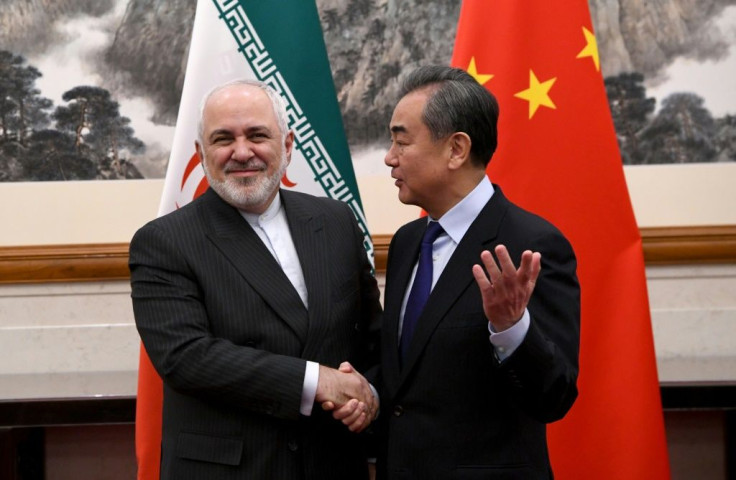Coronavirus Update: How Is China’s Ally Iran Coping With Outbreak?

KEY POINTS
- Iran has banned air travel to and from China
- Iran has failed to increase Chinese tourism to the country
- Iran remains an important source of oil for China
Iran, an oil producer very dependent upon sales to China, said the coronavirus outbreak has dented crude demand and hurt its oil exports.
Iranian Oil Minister Bijan Zanganeh has supported a call by the Organization of the Petroleum Exporting Countries to cut production in order to stabilize oil prices. Crude futures have recently sunk below $50 per barrel.
"The oil market is under pressure and… efforts must be made to balance it," Zanganeh said.
In 2019, China imported 14.77 million tons of oil from Iran, about half the figure from 2018, partly due to U.S sanctions on Teheran.
Meanwhile, Iran has banned air travel to and from China to prevent the spread of coronavirus, following a request by Iranian Health Minister Saeed Namaki.
Namaki also said that Iranians who wish to leave China will be accompanied by a medical escort back home.
The travel ban compromises Iran’s stated desire to promote tourism from China as a means of recouping some of the financial losses caused by U.S. sanctions. Last July Iran decided to suspend visa requirements for Chinese nationals and permitted them to stay in the country visa-free for 21 days.
Iranian Minister of Cultural Heritage, Handicraft and Tourism Ali Asghar Mounesan set an annual target of 2 million Chinese tourists and business travelers to the country. In 2018, only 52,000 Chinese visited Iran.
However, these measures have failed to generate much interest among Chinese travelers.
Iran's deputy tourism minister Vali Teymouri said only 14,000 Chinese nationals entered Iran during the three-month period from July to October 2019, although that was an increase from 13,000 visitors in the same period in the prior year.
China’s Ambassador to Iran Chang Hua said: “The number of Chinese tourists in Iran has increased, but is still far from the desired goal.”
Chang Hua wants closer ties between Beijing and Teheran.
“I hope that Chinese arrivals in Iran will be increased in the future and I believe such travels are essential for the two nations to become more familiar,” Chang Hua said on Wednesday.
A Teheran-based tourist guide named Ahmad pointed out that Iran is a difficult place for the Chinese to be comfortable.
“Chinese tourists tend to prefer receiving information in their mother tongue, but Iran has not done much to provide them with Chinese-language brochures and guidebooks,” he said. “Most female Chinese visitors complained about the Islamic headscarf they were required to wear in public and some of them had difficulties in doing so.”
Jack Huang, founder of a Beijing-based education start-up company, said few Chinese people travel to Iran.
“In general, Chinese people prefer go to countries where travel is cheap, you can shop and it is safe,” he said. “The security situation in Iran indeed is a big concern for us.”
Despite the travel ban, Iran’s privately-owned Mahan Air airlines continued to operate flights to China at least through Tuesday. This breach angered some Iranians.
"Is the airline autonomous and not subordinate to the government?” complained an Iranian named Bahram Parsaei. “Keeping [the airline’s] inept managers [in business] is more important than people’s lives.”
Mahan Air said the last flight from China would arrive in Tehran early Thursday morning.
© Copyright IBTimes 2024. All rights reserved.





















